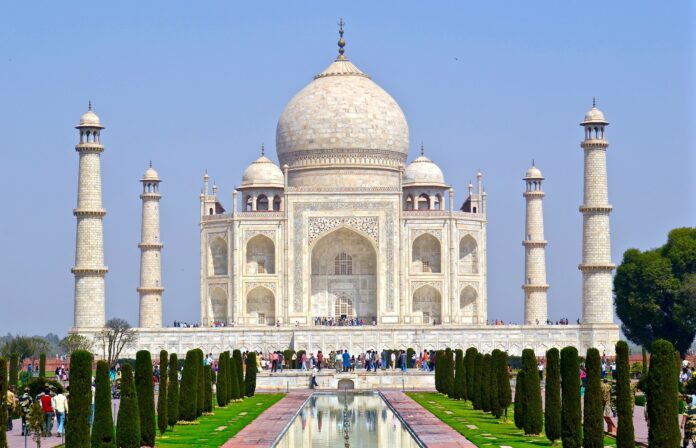(A detailed article on the ideology of veganism, history of veganism, difference between veganism and vegetarianism, veganism in India, factors contributing to the rise of veganism in India, myths associated with veganism and vegan brands in India)
Since the beginning of civilization, humans have always displayed an urge to adapt and evolve with time. This gradual process of evolution has helped mankind progress from caves to space over millions of years.
History has proven that every forward-thinking idea or ideology initially faces socio-political and economic resistance. However, with time, veracity and wisdom of the human mind, society tends to embrace and adapt to these new avant-garde ideas and ideologies.
One such idea and ideology that has been gaining an increasing adoption across the globe in recent years is Veganism.
Veganism is based on an ideology that humans should not exploit animals to fulfil their needs and people who practice this ideology are termed vegans.
Vegans refrain from using any kind of animal or animal products for food, clothing, entertainment, or work amongst others. These people do not differentiate between species and consider all animals equal.
Veganism is gaining increasing adoption in recent years not just because of animal cruelty but also due to related concerns on environment, antibiotic resistance, zoonotic diseases and health.
According to a recent study by BMC Medicine, consumption of meat and poultry products is associated with a higher risk of diabetes, cardiovascular diseases, and certain cancers. Various other studies have associated meat with high mortality rate, while the World Health Organization has categorized meat as carcinogenic (cancer-causing) for humans.
With a rise in awareness around the ill-effects of meat eating, people across the world are gradually adopting plant-based diets.
In a case study published by the U.S. National Institutes of Health’s National Library of Medicine (NIH/NLM): “Healthy eating may be best achieved with a plant-based diet, which we define as a regimen that encourages whole, plant-based foods and discourages meats, dairy products, and eggs as well as all refined and processed foods”.
However, veganism encompasses much more than just food.
Let’s explore it further in this article.
History of Veganism


According to a definition by The Vegan Society,
“Veganism is a philosophy and way of living which seeks to exclude—as far as is possible and practicable—all forms of exploitation of, and cruelty to, animals for food, clothing, or any other purpose; and by extension, promotes the development and use of animal and cruelty free alternatives for the benefit of animals, humans and the environment. In dietary terms it denotes the practice of dispensing with all products derived wholly or partly from animals.”
Simply put, veganism is a practice of refraining from the use of any animal products, particularly in diet, including meat, eggs, and dairy products. Strict vegan philosophy also rejects the commodity status of animals which means that vegans do not use animal-derived products such as fur, silk, leather etc. It also means abstaining oneself from using animals for entertainment or work.
The term “vegan” was coined in 1944 by Donald Watson, an animal rights activist and co-founder of The Vegan Society. However, available evidence suggests that the concept of flesh-avoidance can be traced back to ancient Indian and eastern Mediterranean societies.
The less restrictive form of veganism i.e. vegetarianism was first mentioned by the Greek philosopher and mathematician Pythagoras of Samos around 500 BCE. He championed the cause of compassion towards all species.
Globally, one of the most prominent cultural form of veganism can be traced back to Israel, where all residents of a small village named Dimona are vegan. The 50-year-old vegan village is home to more than 3,000 African Hebrew Israelites of Jerusalem.
Popularly known as the ‘Village of Peace’, the members of this religious community arrived in Israel in 1969. These Hebrew Israelites are not Jewish, rather they consider themselves as spiritual descendants of the ancient Israelites.They draw inspiration and guidance from The Bible, and it dictates their entire lifestyle, including diet.
In India, followers of Buddhism and Jainism have also advocated and practiced a form of veganism in India for centuries, with the belief that humans should not inflict pain on other voiceless animals. Even Hinduism advocates a vegetarian lifestyle, with several animals considered as deities.
Veganism takes inspiration from around the world, and is today both an ideology as well as an animal rights movement that aims to demolish the human-supremacist worldview.
Veganism and Types of Vegans
The term ‘veganism’ in itself is broad and can be divided into several categories. The divisions are not strict but rather flexible and vegans often end up finding themselves in more than one category. Here are a few broad ones:
Ethical Vegans- Ethical vegans, also known as ‘moral vegetarians’, choose this lifestyle to avoid harming animals in every possible way. It is much more than just a plant-based diet, and encompasses every aspect of their living, including clothes, accessories, entertainment, medication, personal care, etc. It is a philosophy driven by the desire to not hurt any sentient living beings irrespective of any personal benefits.
Raw Food Vegans–Simply put, raw food vegans are those who eat foods that are both raw and vegan. Considered as one of the cleanest diets, it means consumption of foods in their natural state without any cooking or processing. People following this diet consume fruits, raw vegetables, sprouted grains and legumes, raw nuts, seeds, plant milk, etc.
Whole Food Plant-Based Vegans–People on whole food plant based (WFPB) diet consume whole foods, such as fruits, vegetables, whole grains, legumes, seeds and nuts. They refrain from consuming any processed or packaged food items. Unlike raw food vegans, they eat cooked foods but exclude refined foods such as added sugars, white flour, and oils.
Environmental Vegans– These people are motivated to practice veganism by their desire to follow a sustainable diet that minimises negative environmental impact.
Difference Between Veganism and Vegetarianism
People often get confused between veganism and vegetarianism, especially due to a growing adoption of veganism in India. However, understanding the fundamental differences between the two is quite simple.
Veganism can be considered as a stricter form of vegetarianism. It encompasses a broad spectrum and the restrictions are not just limited to food but also to all kinds of animal commodification, be it tangible or intangible.
Vegans believe that humans have no right over animals, and therefore, should not use any kind of animal produce nor participate in any activities that involve animals. They do not visit circuses and zoos, and also do not buy animal-tested cosmetics and personal care items.
Vegetarians, on the other hand, do not consume meat due to cultural or religious reasons. Vegetarianism has different variations such as Lacto (those who consume dairy and not eggs), Ovo (those who consume eggs and not dairy) and Lacto-Ovo (those who consume both eggs and dairy).
History and Growth of Veganism in India
India comprises a 30% vegetarian population and is the largest country in terms of vegetarian food consumption. However, a sizeable vegetarian population in the country consumes dairy and dairy products regularly. Therefore, although veganism is growing in India, it is growing at a slower pace in the country compared to western countries.



The tech-savvy and young Indians are more inclined towards conscious eating habits backed by health benefits and ethical reasoning. This is the age group that is driving the growth of veganism in the country.
Roots of veganism in India can be traced back to ancient times. Early ‘moral vegetarian’ philosophers such as Mahavira, Acharya Kundakunda and the Tamil poet Valluvar can be considered as major influencers on the vegan revolution in India.
A quote from the holy text Bhagavad Gita rightly sums up the historical roots of veganism in India:
“When you feel the suffering of every living thing in your own heart, that’s consciousness”
The concept of veganism in India is deep rooted in diverse traditions and cultures. The core of vegan philosophy is further strengthened by the ideology of non-violence (ahimsa) which has been a guiding force in India’s consciousness. Most of the religions in India preach non-violence which is the ideology of veganism as well.
The principles of Jainism also incited a vegan revolution in India long ago. The Jain cuisine is completely lacto vegetarian and also excludes underground vegetables such as potato, garlic, onion etc, to prevent any injury to small insects and microorganisms; and to prevent the entire plant from getting uprooted and killed.
The ancient text Kural, also known as “The Tamil Veda”, is considered one of the most important texts in Tamil literature. Authored by great poet Thiruvalluvar, this divine text lays great emphasis on moral vegetarianism, which is equated to veganism of today. Several eminent personalities like Mahatma Gandhi and Leo Tolstoy were inspired by the concept of non-violence mentioned in the Kural.
Veganism in India is largely driven by conformity to traditional social norms. India is known as a land of spiritualism which binds it with some form of vegetarianism. Hinduism lays great emphasis on the notion of ‘holy cow’, which automatically eliminates the animal from becoming a part of the diet.
However, veganism in its purest form is now on the rise in India due to the influence of the western world, celebrity endorsements and growing consumer awareness. Veganuary, a global organisation, encourages people from across the world every year to take a pledge to turn vegan for the month of January.
Veganuary also releases a survey every year highlighting the top countries in terms of sign ups. In its 2021 survey, India made it to the top 10 countries list of Veganuary sign-ups for the first time and has grabbed the third spot pushing Germany to fourth. Interestingly, India was the only Asian country in the list, while the UK and the US continue to hold the top two spots.
As stated in a latest survey, veganism in India is expected to register a notable growth by the end of 2021 as people start understanding the health benefits of a plant-based diet, such as low cholesterol, weight loss, reversal of lifestyle disorders etc. The covid pandemic and awareness around zoonotic diseases is also leading to a rise of vegans in India.



Rise of Indian Vegan Brands
The increasing demand for plant-based alternatives has propelled the growth of vegan businesses in the country. From a variety of plant-based dairy products to vegan meat alternatives, Indian start-ups are now offering a range of products to help customers adopt a vegan lifestyle. The growing number of vegans in the country has also attracted the attention of global FMCG majors, who are launching vegan products to grab a pie of this expanding market.
Some of the notable names in the plant-based products space in India are Goodmylk, Vezlay, Good Dot, Evo Foods, PlantMade, MilkinOats, Epigamia, Hershey’s Sofit, So Good, Katharos, Bombay Cheese Company, Ahimsa Foods, Evolved Foods, Blue Tribe Foods, Emkay Food Products, and Piperleaf, amongst several others.
Besides food, Indian consumers today have a variety of vegan leather brands to choose from. Companies such as Zouk, Artella, Baggit, Malai, Arture, Brokemate, Aulive, and Monk Story have become household names that offer vegan leather products.
A similar trend is being witnessed in the cosmetics and personal care space. Today some of the world’s top brands are altering their brand philosophy to project themselves as eco-conscious, sustainable, cruelty free and ethical. India too is seeing tremendous action on this front, with both startups and established brands vying for a share of this market.
With options galore, vegans in India will soon be spoilt for choice!
Factors Responsible for the Rise of Veganism in India
Religion – Religion plays an important role in making people switch to a vegan lifestyle. The rich cultural heritage and divine manuscripts teach us to lead a life of non-violence, ultimately leading to veganism.
Ethical & Emotional Reasons – Preventing exploitation of animals is one of the key factors responsible for rise of veganism in India. According to The Vegan Society, having emotional attachments with animals may contribute to the increasing lifestyle change to veganism in India while some also believe that every living creature has a right to life and freedom.
Health Benefits and Availability of Vegan Alternatives – A large scale 2019 study linked a higher intake of plant-based foods with a reduced risk of heart diseases and death in adults. According to a systematic review with meta-analysis of observational studies, eating a vegan diet may reduce a person’s risk of cancer by 15%. This is because plant foods are high in fiber, vitamins, and phytochemicals — biologically active compounds in plants — that protect against cancers. Besides these, other health benefits such as low risk of type 2 diabetes and weight loss are also visible.
The emergence of vegan alternatives in India has made a notable impact in the Indian vegan food industry. Meat alternative companies ranging from Good Dot to Vezlay to Beyond Meat have introduced their vegan food alternatives in India making it easier to adopt vegan lifestyle.
Availability of Vegan Staples in Indian Kitchen – A typical Indian meal consists of rice, pulses, bread, vegetables, pickle etc. All these dishes are also found in vegan diets. These cereals, legumes, pulses and grains are part of Indian traditional meal which makes them easily available in their kitchen pantry. In fact, most of the Indian dishes are already plant-based.
Celebrities Going Vegan – Veganism in India has a celebrity touch to it. Many Bollywood and cricket stars have regularly advocated veganism and pledged to go on a 100% plant-based diet which ultimately leads to an expansion of its area of influence.
Increased Awareness of Environmental Impact – The burning of fossil fuels, destruction of rainforests and animal farming add enormous amounts of greenhouse gases to the atmosphere and increase in global warming. India’s major contribution to the climate crisis is from animal farming.
Myths around veganism
There are plenty of myths surrounding a plant-based diet, but several studies and evidence have shown that vegan food can be diverse, nutrient-rich and healthy. We have debunked some of the common misconceptions about plant-based diet and vegan nutrition.



Vegans are Nutrition-deficient – According to a research published in the Journal of the American Osteopathic Association, it is found that vegans have not been shown to be deficient in protein intake or any specific amino acids. The study points out that a whole food, plant-based diet is commendable, and a well-planned vegan diet can be adequate to achieve proper nutrition.
Plant-Based Diet is Restrictive – A plant-based diet opens up a variety of new food options that are rich in protein, fiber and other vital nutrients. Mushrooms, jackfruit, legumes, and pulses are all popular plant alternatives to meat. Beans and lentils are ideal ingredients for curries and stews. They are extremely high in protein and fiber, low in fat, and a healthy source of B vitamins.
Turning Vegan means goodbye to tasty foods – Meat by itself has no taste at all, when cooked with “vegan” spices it absorbs flavours whereas fruits and vegetables have a lot of flavour of their own. By using meat alternatives such as tofu, seitan, and soy patties, you can mimic the taste of meat if you like. Preparing yum foods like burgers and pizzas with plant-based ingredients is extremely easy when used in a proper manner.
Vegan Foods are Expensive – Of all the places in the world, getting vegan food in India is one of the least expensive. All Indian kitchens consist of cereals, legumes, pulses, and grains because they are a staple of Indian traditional meals. Vegan diet is predominantly influenced by the local fruits and vegetables that are available easily in local markets.
Only Vegans Need Supplements – According to the National Health Service System (UK), with good planning and an understanding of what makes up a healthy and balanced vegan diet, you can get all the nutrients your body needs to be healthy without the need for supplements. If the diet is planned properly, there are ample of plant- based sources of Vitamin B12, Iron and Calcium, which will fulfil your daily nutritional requirements.
Are you an Indian who wants to turn vegan? Read our articles and follow our social media pages to stay updated on latest news about veganism in India.


